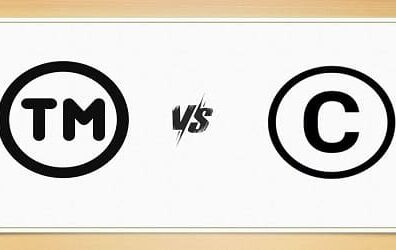Mandatory and Event based Compliances for a Private Company

Introduction
A private company stands out as a widely embraced form of limited liability ownership. With a minimum requirement of two individuals for incorporation and operation, it imposes no constraints on the minimum paid-up capital. Distinctive features, such as limited liability for shareholders, the ability to secure equity funds, a separate legal identity, and perpetual succession, position it as the preferred business entity for countless small and medium-sized businesses, whether family-owned or professionally managed.
This article gives a comprehensive view of the compliances for a private company.
Mandatory Compliances for a Private Company
A private company must adhere to specific compliances throughout their operational tenure. Below are some key compliances:
- Appointment of First Auditor: A private company is required to appoint its first statutory auditor within 30 days of incorporation. An intimation to Registrar of Companies is required to be given in E-Form ADT-1. The first auditor of the company is responsible for conducting the statutory audit and preparing the financial statements for the first financial year of the company. The tenure of the first auditor comes to an end on the first Annual General Meeting. However, the first auditor shall be eligible for reappointment in the AGM for future years.
- Certificate of Commencement of Business: Companies incorporated after November 2018 must file E-Form INC-20A for the Certificate of Commencement of Business within 180 days of incorporation. The E-Form INC-20A is required to be filed once the subscribers to the Memorandum of Association deposit their share of money subscribed towards the Capital of the company at the time of incorporation.
- Board Meetings: The first Board Meeting must be conducted within 30 days of incorporation. In the first board meeting the private company shall consider the following items among others:
- Election and appointment of Chairperson
- Taking a note of the Certificate of Incorporation, Memorandum of Association and Articles of Association
- Adoption of Common Seal
- Opening bank account in the name of the company for deposit of share capital
- Issue of share certificates
- Appointment of First Auditor
- Approving and adopting preliminary expense.
- Any other matter as required by the company
For subsequent financial years there must be minimum of four meetings annually, with no more than 120 days between consecutive meetings. Exceptions apply for One Person Companies, Small Companies, Section 8 Companies, and dormant companies. A 7-day notice is required, and the quorum is set at 1/3rd of the total strength or 2 Directors, whichever is higher.
- Annual General Meeting (AGM): Excluding One Person Companies, an AGM is required to be conducted mandatory for financial disclosures, board reports, auditor appointments, and director appointments. The first AGM must take place within nine months of the financial year-end, with subsequent AGMs within six months. The maximum gap between AGMs should not exceed fifteen months. However, a 21-day notice is necessary but AGMs can be held on a shorter notice as well.
- Requirement of MGT-8: The Annual Return of a private company with a paid-up share capital exceeding 10 crore rupees or a turnover surpassing 50 crore rupees must receive certification from a practicing company secretary. The certificate issued by the company secretary should adhere to the specifications outlined in Form No. MGT-8.
- Disclosure of Director’s Interest: At the first Board meeting attended by a director and subsequently, at first board meeting of each financial year or following any alterations to previously disclosed information, the director shall file Form MBP-1 with the company regarding interests in other companies, bodies corporate, firms, or other associations of individuals.
- Disclosure of Non-Disqualification by Director: Each director is required to submit a disclosure regarding non-disqualification to the Company. This disclosure is required to be furnished in the first board meeting of each financial year.
- Filing of Income Tax and Annual Return: Companies need to file the audited accounts with the Income Tax Department annually. Audited financials, Auditor’s Report and Director’s reports must be filed with the ROC in E-Form AOC-4 within 30 days of the AGM. The Annual Return in E-Form MGT-7 or MGT-7A is required to be filed within 60 days of the AGM.
- Maintenance of Statutory Registers: Statutory registers including Board Meeting minutes, General Meeting minutes, debenture holder meeting minutes, Register of Charges, Register of Share Certificates, and Register of Members etc. must be maintained.
- Filing of Director’s Identification Number (DIN) KYC: Individuals with a Director Identification Number (DIN) must submit E-Form DIR-3 KYC annually to the Registrar of Companies, failing which may result in DIN deactivation and a Rs 5,000 penalty.
Event Based Compliances for a Private Company
A private company must submit various forms to the Registrar of Companies (ROC) to report any internal changes. Below are some event-based compliances along with the corresponding forms that need to be filed for this purpose.
S. No. | Nature of Event | Section | E-Form | Description of Compliances |
01. | Change in Director | Section 149 | DIR-12 | A private company is required to inform the Registrar of Companies by submitting E-Form DIR-12 regarding Change in Directorship within 30 days of such change. |
02. | Change in Authorized Share Capital | Section 61 and 64 | SH-7 | Private company is required to inform the Registrar regarding change in Authorized Share Capital by filing E- Form SH-7 within 30 days of such change. |
03. | Return of Allotment | Section 62 | MGT-14, PAS-3 | A private company must inform the Registrar by filing MGT-14 within 30 days of passing any Special Resolution acknowledging the approval granted by the shareholders regarding issue of further capital. Further the company is also required to file E-Form PAS-3 within 15 days of making such allotment. |
04. | Creation and Modification of Charge | Section 77 | CHG-1 | A private company is required to inform ROC by filing E-Form CHG-1 within 30 days of Creation or Modification of a Charge. The E-form CHG-1 can be filed within maximum 120 days of creation or modification of a charge on payment of additional fees. |
05. | Registration of Satisfaction of Charge | Section 82 | CHG-4 | A private company shall within 30 days of Satisfaction of a charge is required to file E-Form CHG-4 to inform the ROC of such satisfaction. |
06. | Appointment of Statutory Auditor | Section 139 | ADT-1 | A private company is required to file E-Form ADT-1 within 15 days of appointment of Statutory Auditor to inform the ROC. |
07. | Resignation of Statutory Auditor | Section 140 | ADT-3 | A private company is required to inform the ROC of Resignation of Auditor by filing E-Form ADT-3 within 30 days of such resignation. |
08. | Removal of Statutory Auditor | Section 140 | ADT-3 | The removal of an auditor prior to the completion of their term requires the passing of a special resolution during a general meeting. Additionally, obtaining prior approval from the Central Government is necessary. It is essential to provide the auditor with a fair opportunity to be heard before the removal process is initiated. The intimation regarding the auditor removal is required to be given in E-Form ADT-3 to the Registrar. |
09. | Shifting of Registered Office within the same city, town or village without change in the jurisdiction of ROC | Section 12 | INC-22 | A private company must file E-Form INC-22 with ROC to inform the regarding the change in registered office of the company. |
10. | Shifting of Registered Office outside the same city, town or village with change in the jurisdiction of ROC | Section 12 and 13 | INC-23, INC-28, MGT-14 and INC-22 | A private company is required to file E-Form MGT-14 within 30 days of passing the Special Resolution authorizing the change of registered office outside the limits of the same city, town or village. Company is also required to apply for Approval of Regional Director for shifting of registered office in E-Form 23. The order received from Regional Director approving such change is required to be filed within 60 days of receipt of the order in E-Form INC-28. The Company is also required to file E-Form INC-22 within 30 days of approval of RD. |
11. | Section 13 | MGT-14 and INC-24 | A private company can change its name by passing a special resolution in a general meeting. The intimation regarding this special resolution must be given to the registrar within 30 days of passing such resolution in E-Form MGT-14. Further, E-Form INC-24 needs to be filed for seeking permission for name change within 30 days of passing such special resolution. | |
12. | Object Clause Change | Section 13 | MGT-14 | A private company at any time may change its main objects by passing a special resolution for any business purpose. An intimation regarding such change shall be given to the registrar within 30 days of passing the special resolution. |
13. | Section 14 | MGT-14 | A private company at any time may change its articles of association by passing a special resolution for any valid reason. An intimation regarding such change shall be given to the registrar within 30 days of passing the special resolution. | |
14. | Return for Delay in payments to MSMEs | Section 405 | Form MSME-1 | A private company is required to inform the ROC about the delay in payments to MSMEs beyond 45 days by filing E-Form MSME-1 on a half yearly basis before 30th April and 30th October every year. |
15. | Return of Deposits with the Company | Section 73 | DPT-3 | A private company is required to File Return of Deposits and loans or money taken but not considered as deposits in E-Form DPT-3 with the ROC before 30th June for every financial year ending on 31st March. |
16. | Filing of Resolutions and Agreements with ROC | Section 117 and Section 179 | MGT-14 | A private company is required to file various resolutions and agreements with the Registrar by filing E-Form MGT-14. (Note: Kindly refer to the notification dated 05/06/2015 for the Exemptions in filing of E-Form MGT-14) |
17. | Additional place other than the registered office where the books of accounts and statutory registers are being kept | Section 128 | AOC-5 | A private company must file E-Form AOC-5 within 7 days of passing the Board resolution to inform the Registrar regarding any additional place where the books of accounts and statutory registers are kept other than the registered office. |
18. | Disclosure of Substantial Beneficial Ownership (SBO) | Section 90 | BEN-2 | The private company is required to inform the Registrar regarding the Substantial Beneficial Owners in E-Form BEN-2. |
Conclusion
To conclude, the operational landscape for a private company is characterized by a number of obligatory compliances and filing. These are not just legal requirements, but also critical components in ensuring transparency, accountability and regulatory compliance. From the early stages of appointing the first auditor and obtaining the Certificate of Commencement of Business to the routine conduct of board meetings and annual general meetings, every compliance contributes to the company’s strong governance.
The extensive list of event-based compliances for a private company emphasizes on the dynamic nature of its journey. Whether it’s a change in directorship, authorized share capital or registered office, the company must manage these processes with care and attention to deadlines.
Furthermore, the emphasis on financial disclosures, regulatory filings and timely completion of numerous forms demonstrates a private limited company’s commitment to follow the law.
In essence, by engaging in these compliances, a private company not only fulfils its legal responsibilities but also promotes an environment of trust and reliability. The discipline demonstrated in regulatory compliance not only protect stakeholders’ interests but also adds to the company’s long-term viability and performance in a competitive business environment.
Follow Us
Keep Yourself Updated By Following Us




